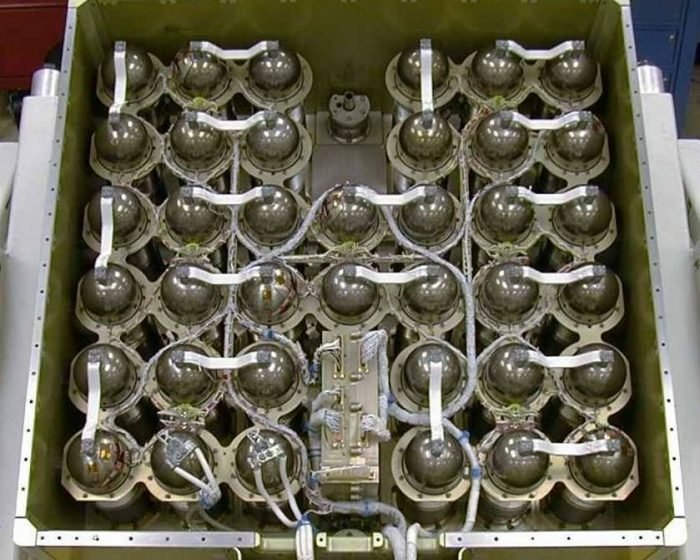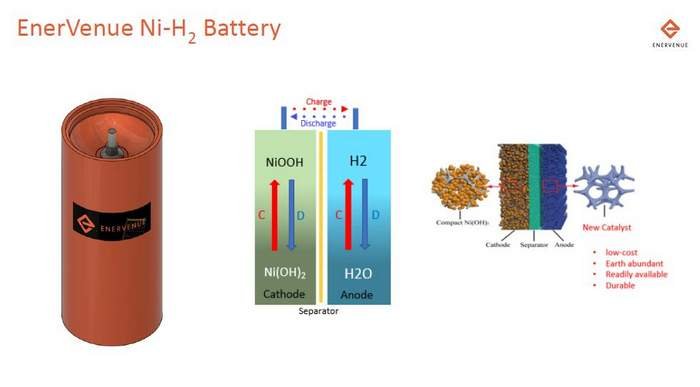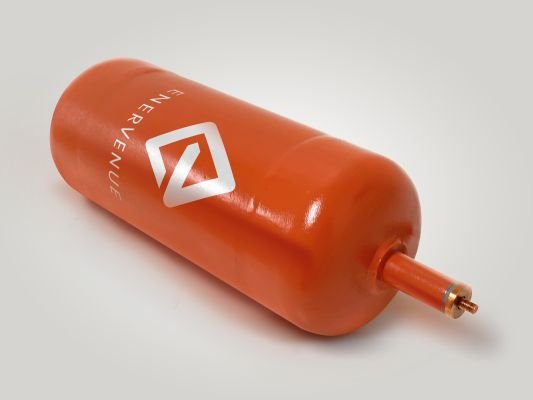Relying too heavily on lithium for energy storage could lead to environmental and social consequences that could be avoided if other battery technologies were included in the mix. The global energy services company Schlumberger has decided to do just that and has signed a storage agreement with EnerVenue.

EnerVenue is a start up founded in 2020. However, don’t let the fresh face fool you. The company’s lead researcher and Chief Technology Advisor is Dr. Yi Cui of Stanford University (follow the link for a long list of awards and recognition), and its formula of choice is the the tried and true nickel-hydrogen battery, such as that used in the Hubble Space Telescope and the International Space Station, among others.
“Nickel-hydrogen batteries have completed more than 200 million cell-hours in orbital spacecraft and more than 100,000 charge/discharge cycles,” EnerVenue points out.

EnerVenue claims a 30,000-cycle lifespan over 30 years or more without degradation, as well as other performance qualities including durability under extreme hot and cold temperatures, for its new nickel-hydrogen battery.
Zero risk of fire or overheating and zero need for maintenance or operating care are two other features, in addition to the use of materials that are low cost, not toxic, and easy to recycle.

So, why is this outer space battery of the future only just now making an appearance on Earth? Good question!
Reducing costs, scaling up, and engineering a system that enables high production volume are three issues that generally bedevil businesses seeking to bring NASA-style technology down to the ground but it seems EnerVenue has hit the right chemistry and backing for its energy storage technology.
Reference- Forbes, BloombergNEF, EnerVeneue website, CNBC, InsideEVs






